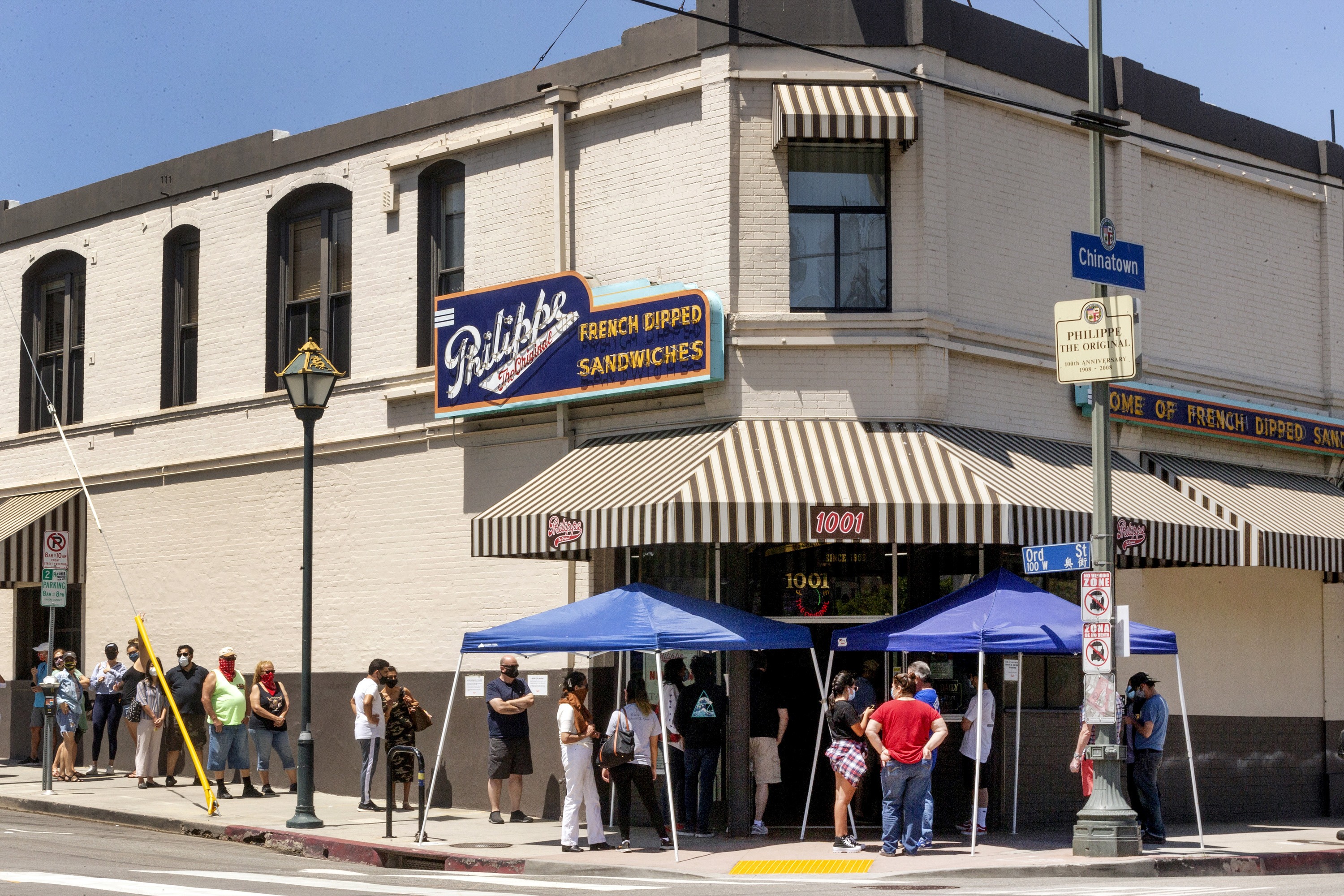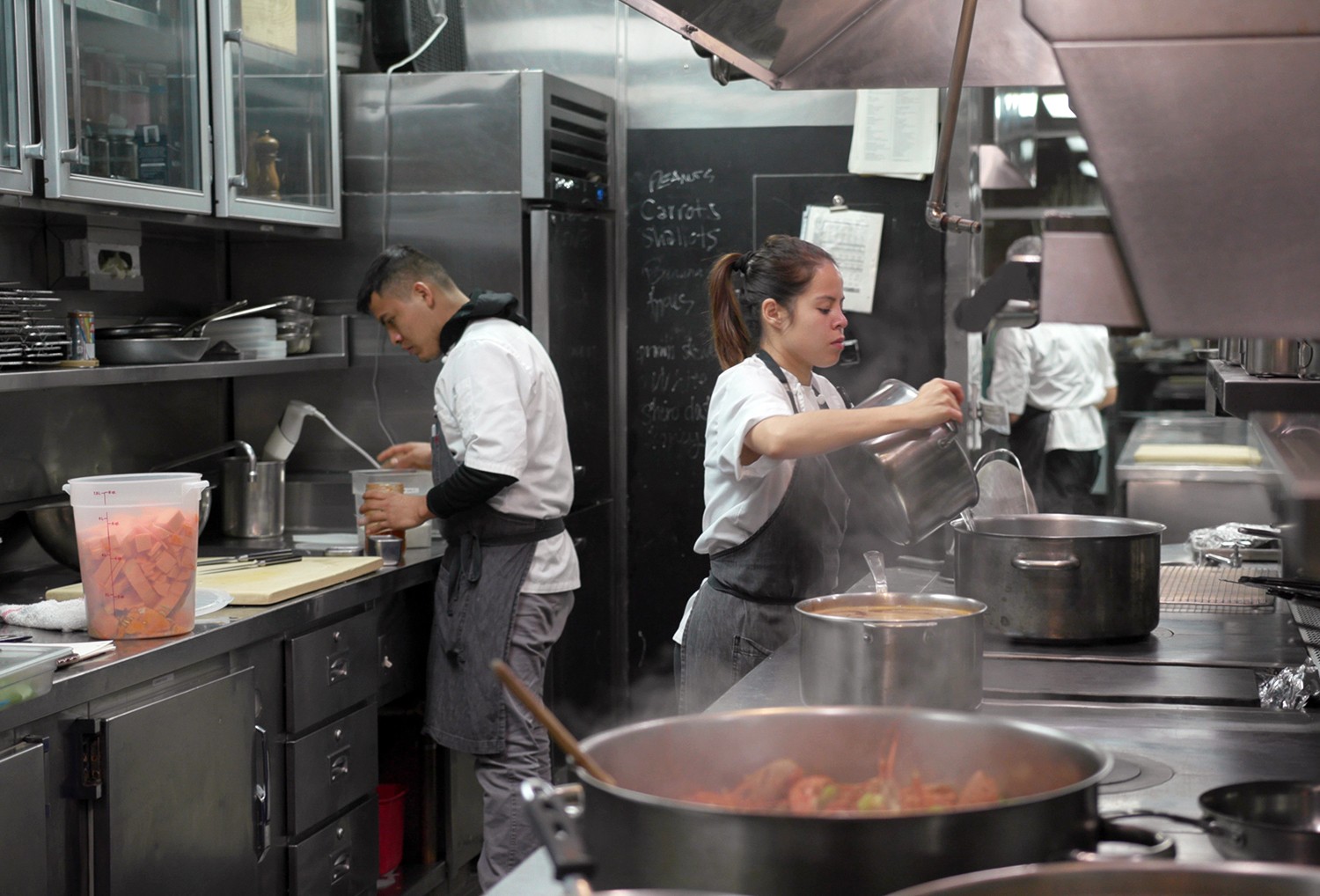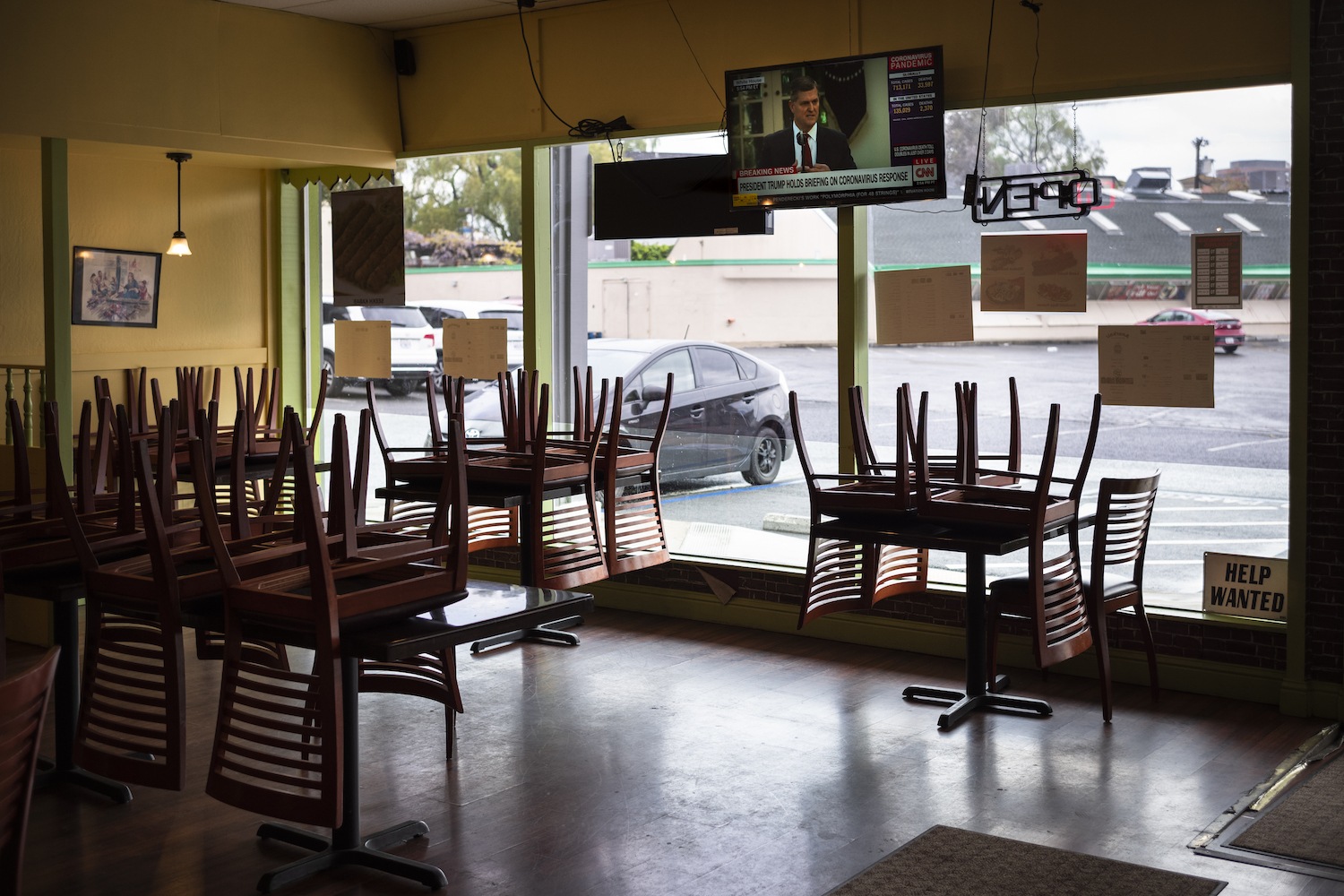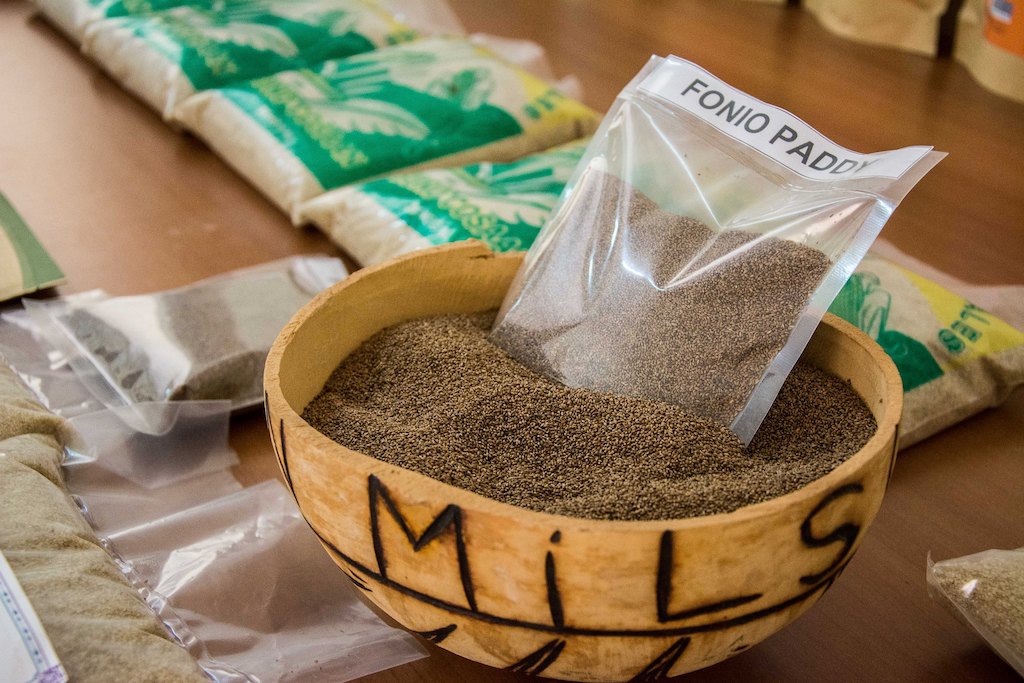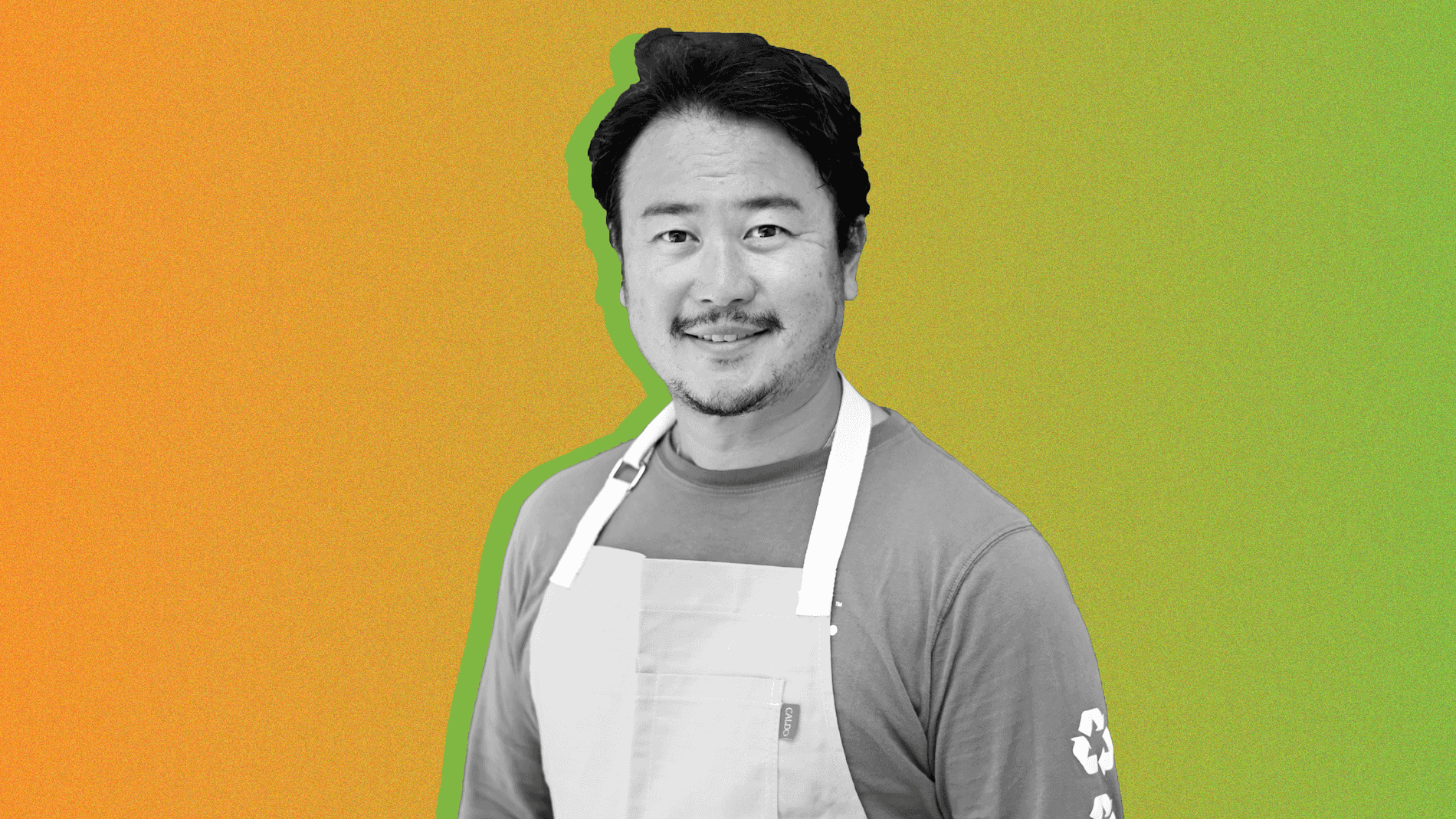
Photo by Danielle Adams / Graphic by Talia Moore
A strip of pandemic-abandoned businesses in the heart of Santa Monica is showing a glimmer of life, as new restaurants cautiously emerge from the shadows.
In spite of everything—which is saying a lot—there’s still a small thrill on a restaurant’s opening night. One couple has already ordered takeout and headed home, two guys just sat down at a table against the wall, and an eager employee stands at the sidewalk with menus and a spiel, hoping to add to their ranks. Edobox, a Japanese fast-casual place, has opened for business just as the country faces a third Covid surge.
Pictured above: Chef Makoto Okuwa, co-partner of Edobox, a Japanese fast-casual restaurant in Santa Monica, CA.
It’s odd to talk about “silver linings” when the National Restaurant Association says that 100,000 restaurants have closed, and another 40 percent predict they likely won’t survive another six months without further aid. But that’s how realtor Miriam Janousek described a spate of openings built on top of other businesses’ demise in Ocean Park, a beachside neighborhood in Santa Monica, California.
For months, she said, the Main Street business district felt like “a ghost town, a scary place with an ominous feeling,” but new businesses have begun to sprout in long-vacant spaces, and the street has started to come alive—even though silver linings imply that the clouds haven’t parted altogether, and there’s still a risk of bad weather.
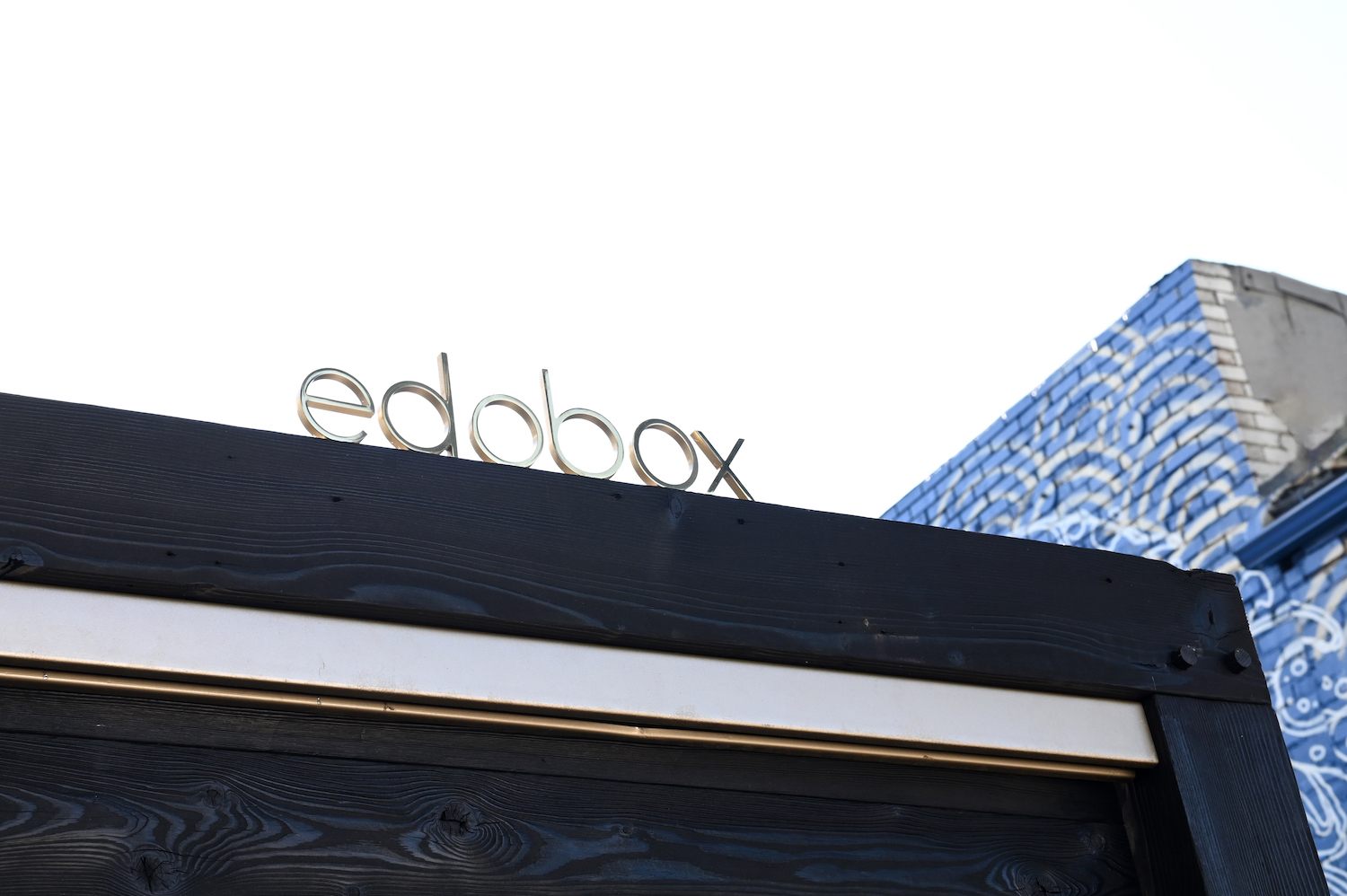
Edobox is the first but not the last fast-casual project from Chef Makoto Okuwa, best known for full-service restaurants in Miami, Mexico City, Panama City, Panama and São Paolo, Brazil.
Danielle Adams
Ocean Park is the sort of place where a small restaurant can get by without any indoor seating at all, nothing to reduce, nothing to reconfigure: Just a little square building with a kitchen and bathrooms at the back of a tiny lot, a patio out front that seats 20 at half-occupancy, and the ubiquitous parklet at the curb to add another 30 seats. Before the pandemic, 2912 Main Street was a burger joint called Cowabunga, which didn’t last long. Now it’s Edobox, all dressed up with a new paint job, a new mural on the side wall, new furniture and to-go boxes and landscaping. It is serving bento boxes a diner can customize from a menu of options—$28 for four items, $36 for six, dessert optional for $4 more—to stay or to go.
Edobox is the first but not the last fast-casual project from Chef Makoto Okuwa, best known for full-service restaurants in Miami, Mexico City, Panama City, Panama and São Paolo, Brazil. He and one of his two business partners, Sky Strouth, surveyed the work in progress just days before opening and agreed: For better or worse, and it’s both, this is the future, and they intend to make the most of it.
They’re seizing opportunity in the midst of closures, waiting to hear if landlords will accept their offers on two more nearby locations. And they aren’t the only ones bidding, as restaurants scoop up deals and set up shop.
“We’re passionate about the democratization of food, and democratic access boils down to Makoto’s entire repertoire in two four- or six-course tasting menus in a box.”
San Diego’s JuneShine, which sells hard kombucha, will go in next to edobox; Go Get ‘Em Tiger, an upscale coffee place, has taken over a family-run space a few blocks north.
“Smart people are making deals right now,” said Strouth. “Deals are good—and unfortunately, the hard part of that is that someone went out of business to make it so.”
If the dynamic sounds familiar, it is. Hunter Hall, executive director of the Main Street Business Improvement Association and a restaurant consultant, said the same thing happened after the 2008 recession. “There was a buying frenzy after the recession for anyone with cash,” he said, “and cash is king now, too, whether it’s private equity or someone’s own money. Anyone with cash can take their pick of places. If I had a couple million bucks liquid, I could knock on any door: ‘Want to get out of your lease?’ Done.”
—
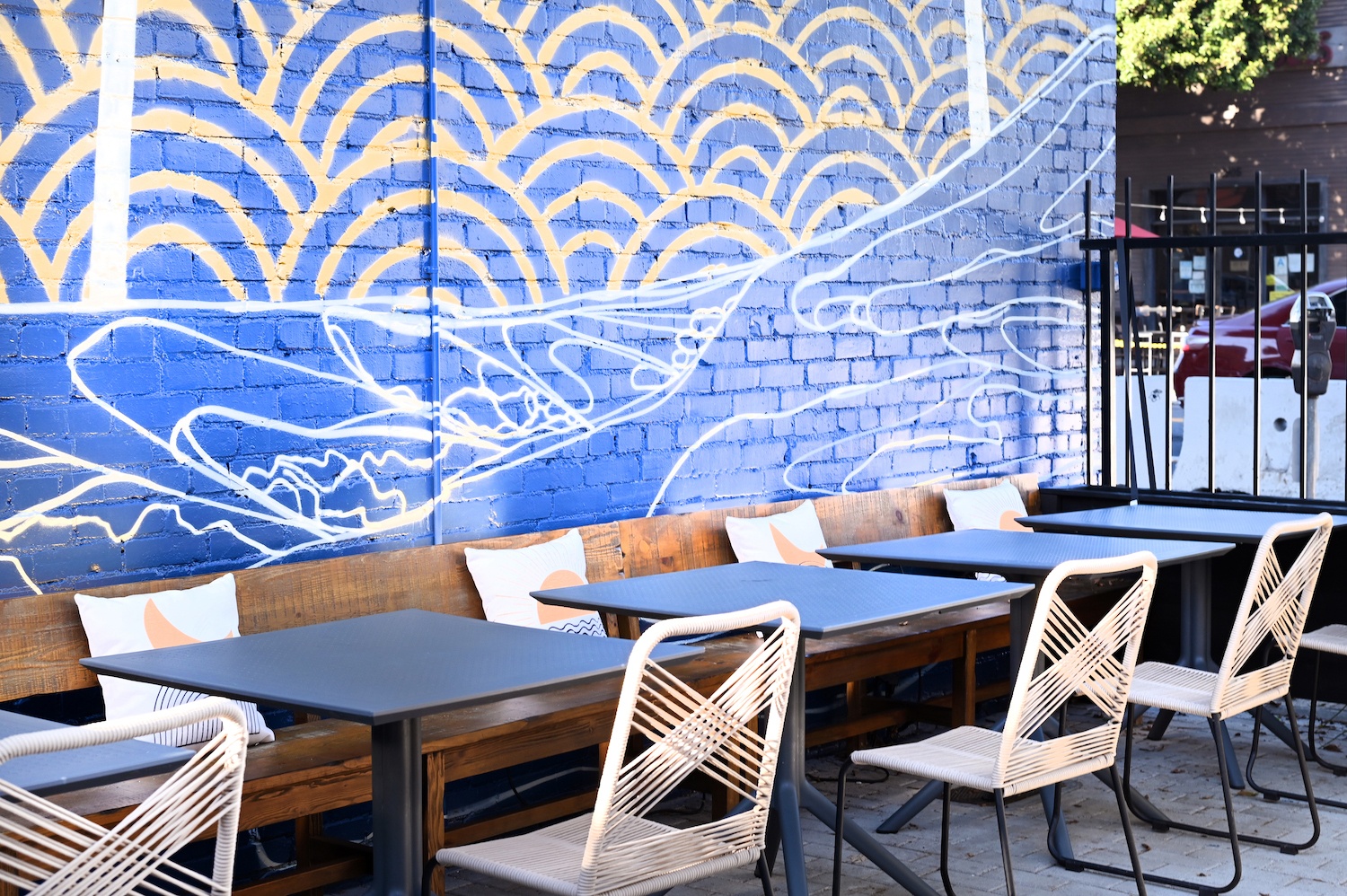
Outdoor dining at edobox in Santa Monica, CA.
Danielle Adams
Okuwa and his partners in Meiso Hospitality started to think about fast-casual concepts three years ago, because traditional restaurants were in trouble long before Covid finished so many of them off, but edobox is a “pandemic collaboration,” said Strouth, which means it’s an even more streamlined operation than it might have been.
There will be five employees per shift, rather than the 15 a full-service operation would require, to keep prices down and create a reassuring physical buffer between them and the customer. People will order online and pay at two stations equipped with a screen and a bottle of hand sanitizer, and will get a text when their food is ready to be picked up at the kitchen window. One employee will be available on the patio to answer questions and sanitize the tables; the rest will be in the kitchen, visible but untouchable.
Strouth sees the new concept as more of an expansion than an exercise in limits. “We’re passionate about the democratization of food, and democratic access boils down to Makoto’s entire repertoire in two four- or six-course tasting menus in a box,” he said. “Japan is known for expensive cuisine, but all our concepts, now, will be for the everyday person.”
The trio had negotiated deals at several food halls, including ones in Houston and downtown Los Angeles, but when those venues stalled they circled back to the Main Street space, which they’d seen even before they were ready with a concept.
“Capital’s frozen up at food halls, people sitting back and waiting” until indoor dining eases up, said Strouth, “so we decided to do something else.” Another food-hall project in Washington, D.C., probably won’t open until the end of 2021.
Okuwa, whose career has been devoted to the opposite end of the dining-out spectrum, has to work hard to embrace his role in Main Street’s potential renaissance. “I still like the human communication,” he said, sitting amid scattered tables and chairs a week before the scheduled opening. “I wish the pandemic would stop. I wish this is not the way to see the future. I wouldn’t eliminate this because some people are comfortable this way, but I’d like it to be one of many options.”
“We’ll do our best with the box,” he said, “but when you have a plate and utensils, visually, it makes it taste better. And we have to think about what can still taste good in 15 to 30 minutes. Fried dumplings? Why would you do that?” There will be boiled dumplings, instead, made from homemade dough—slightly thicker than store-bought dumpling skins, and so likelier to survive the trip home in better shape.
Strouth is philosophical about the demands of this kind of dining. “It’s the only way we can access the community, so why not? We’re not going to wait for something to happen.”
“It might be politically safe to talk about rent forgiveness, but it’s a band-aid on a gunshot wound. This depends on Washington, on the state level, and on how quickly the public pulls its head out of the sand and falls in line with regulations to bring the number of cases down.”
And strapped landlords are in the mood to bargain. Beachfront rents used to tip in the landlord’s favor, which meant that restaurants had to pay a premium, cutting into already slim profits. “They were just getting by or on the edge,” said Janousek, “and when corona happened it pushed them into a worse position.”
New tenants are able to negotiate better terms with landlords who preside over vacant space—they ask for six months’ free rent instead of the standard two or three, and make “lowball offers” that end in a compromise. Strouth said that he and Okuwa pay “high four figures” for the edobox space, and landlord Jay Demircift acknowledged that they did, in fact, get a discount, “though I didn’t give it away.”
But Main Street’s latest residents, as well as newcomers to other emptied business streets, won’t be safe forever. Landlords aim to get back to market value within three to five years, according to Hall. Most leases include periodic increases to step back up to what they want.
“Without the passage of the restaurant act or some industry-specific bailout legislation, it’s still pretty bleak,” said Hall. “And it’s not fair to expect property owners to shoulder all the burden; it might be politically safe to talk about rent forgiveness, but it’s a band-aid on a gunshot wound. This depends on Washington, on the state level, and on how quickly the public pulls its head out of the sand and falls in line with regulations to bring the number of cases down.”
—
Demircift’s other Main Street tenants hearken back to an earlier, easier time, as does The Puzzle Zoo, the toy store he owns right next to edobox. There’s a jewelry store, a bicycle shop, a tiny coffee place, and the 25-year old Holy Guacamole, whose mural is a reinterpretation of Michaelangelo’s The Creation of Adam, with God offering Adam a taco.
Janousek has heard “rumblings,” she said, from neighbors who worry that the next generation of restaurants will make Main Street more like its adjacent and far more expensive neighbor, Abbott Kinney Boulevard, where national luxury brands have replaced many independent businesses. The neighbors she’s talking about can afford the higher prices; they just prefer the local beachfront vibe.
Hall said you can’t have it both ways: “Everybody wants cute mom’n’pop businesses, reasonable prices and all that, but you can’t in an affluent beach community,” he said, “because you can’t run a business like that when the rents are high, even now. No one’s to blame. It’s just the way things develop.”
“Everybody wants cute mom’n’pop businesses, reasonable prices and all that, but you can’t in an affluent beach community. Because you can’t run a business like that when the rents are high, even now. No one’s to blame. It’s just the way things develop.”
Strouth agreed. An operator has to sell a lot more $8 hamburgers than $28 bento boxes to make a profit, so the partners are betting that the neighborhood sees the future as they do: more high-quality places, an accompanying price uptick, but not as high as it could be because of reduced service, which improves the bottom line.
The only thing that’s missing, to Okuwa, is what got him here in the first place: a commitment to craft, and an investment in the future of dining out. The menu is a departure from the standard bento box menu of protein, rice and a salad, with about a half-dozen choices in each of the six categories, but it’s still not what Okuwa’s spent his life doing. He can’t help wonder about the long-term consequences of a new, more limited dining environment.
“What’s going to happen in the next 30 or 40 years if no one wants to be a chef?” he said. “I want people to think it’s a great job, hard, but great. I want to see more passion to create beauty.”


